Discover the hidden dangers of toxic hair products and learn how salon owners can transition to safer, eco-friendly alternatives to protect clients and staff while boosting loyalty and trust.
Why Safer Alternatives Are a Must for Salon Owners
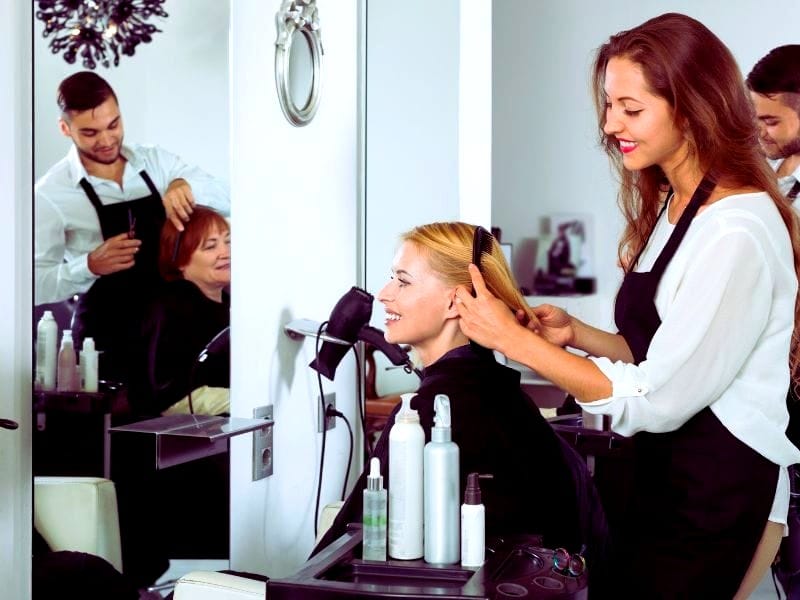
Have you ever flipped over a shampoo bottle and felt like you needed a chemistry degree to decode the ingredients? If so, you’re not alone. It’s not just confusing—it could be risky. As professionals in the beauty industry, salon owners must take the lead in understanding what goes into the products we use. Why? Because the health and trust of your clients and staff depend on it.
Haircare products today are loaded with seemingly harmless chemicals. But dig deeper, and the story takes a troubling turn. Some of these “standard” ingredients, praised for their quick-fix effects, can wreak havoc on both hair health and overall well-being. In this comprehensive guide, we’ll explore toxic hair products and explain why prioritizing safer alternatives matters now more than ever.
Ingredients to Avoid in Haircare
The list of offenders in modern toxic hair products is shockingly long, but here are the primary culprits:
1️Sulfates (SLS, SLES)
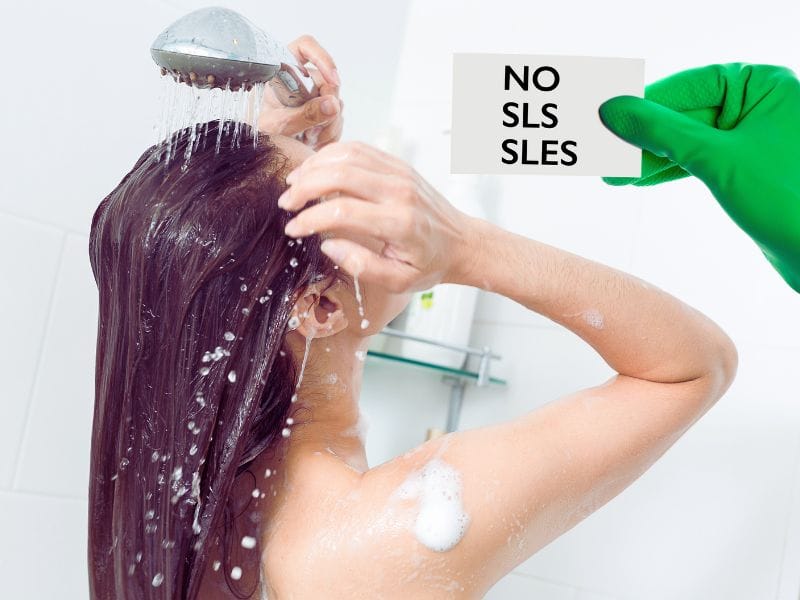
You know that luxurious, frothy lather you get from shampoos? That’s sulfates at work—mainly Sodium Lauryl Sulfate (SLS) and Sodium Laureth Sulfate (SLES). They’re surfactants that strip dirt, oil, and product buildup from hair.
The problem? Sulfates are harsh. While they effectively clean, they also strip away natural oils, leaving the scalp dry and irritated. For clients with sensitive scalps, color-treated hair, or natural curls, sulfates can be devastating. Excessive use can lead to:
- Brittleness and frizz
- Irritation and redness
- Color fading
Why salons should care: Switching to sulfate-free shampoos can provide a gentler cleansing experience, reducing scalp irritation and retaining essential moisture.
2️⃣ Parabens
Parabens are preservatives that extend the shelf life of haircare products. On paper, that sounds great. However, parabens are synthetic chemicals that mimic estrogen in the body, disrupting hormonal balance.
Multiple studies have raised concerns about their link to:
- Hormone disruption
- Breast cancer risk (due to accumulation in tissues)
Why salons should care: Clients are becoming more educated and conscious of product safety. Choosing paraben-free alternatives will help you align with client expectations for cleaner, safer options.
3️⃣ Silicones
Silicones are often used to give hair that enviable, silky shine. They coat the hair shaft, smoothing out frizz and flyaways. Sounds like a win, right? Not quite.
Over time, silicone-based products create buildup that:
- Suffocates hair by preventing moisture and nutrients from penetrating
- Weighs hair down, leaving it limp and lifeless
- Requires harsh cleansers (like sulfates) to remove
This creates a vicious cycle of dependency on these very products.
Why salons should care: Clients may experience “fake shine” but long-term hair health declines. Educating clients about silicone-free products ensures they see genuine results.
4️⃣ Synthetic Fragrances
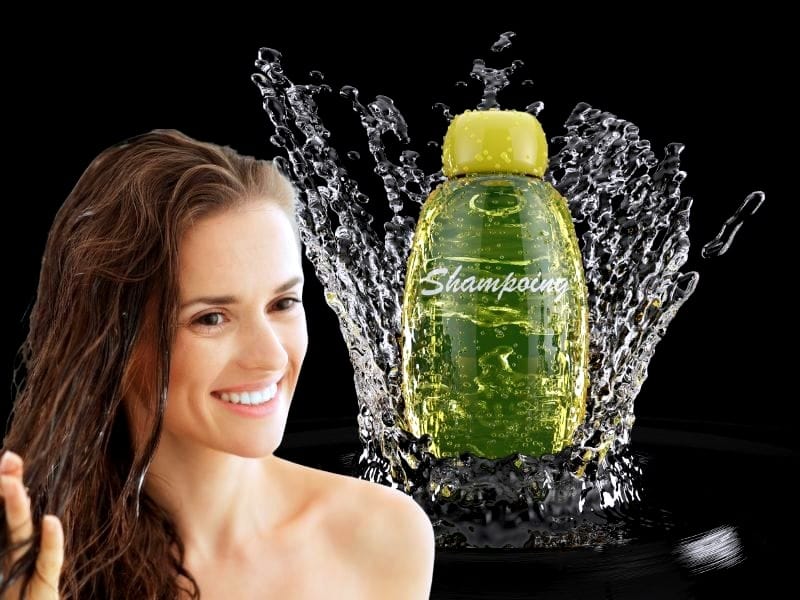
Who doesn’t love a beautifully scented shampoo? However, synthetic fragrances often include hidden allergens and toxic chemicals. Manufacturers aren’t required to disclose the specific chemicals used to create these fragrances, leaving clients unaware of what they’re applying.
Some side effects include:
- Allergic reactions (itching, redness)
- Respiratory issues
- Headaches or dizziness
Why salons should care: Natural alternatives, like essential oils, can offer subtle, soothing scents without compromising health. Transparency builds trust.
5️⃣ Phthalates
Phthalates are chemicals used to stabilize synthetic fragrances and make plastics more flexible. Unfortunately, they’re also classified as endocrine disruptors.
Phthalates have been linked to:
- Hormonal imbalances
- Reproductive issues
- Developmental problems
They hide under vague terms like “fragrance” or “parfum,” making them difficult to detect on labels.
Why salons should care: By offering products free of phthalates, you’ll appeal to health-conscious clients looking for safer solutions for themselves and their families.
6️⃣ Formaldehyde & Its Derivatives
Formaldehyde is a well-known carcinogen used as a preservative or released slowly by certain chemical compounds in products. Even at low exposure, formaldehyde can cause:
- Respiratory problems
- Eye irritation
- Long-term cancer risks
Some common formaldehyde-releasing agents include:
- DMDM hydantoin
- Quaternium-15
- Imidazolidinyl urea
Why salons should care: Avoiding formaldehyde-based products ensures a safer environment for both clients and staff.
Why Switching to Vegan Hair Care Matters
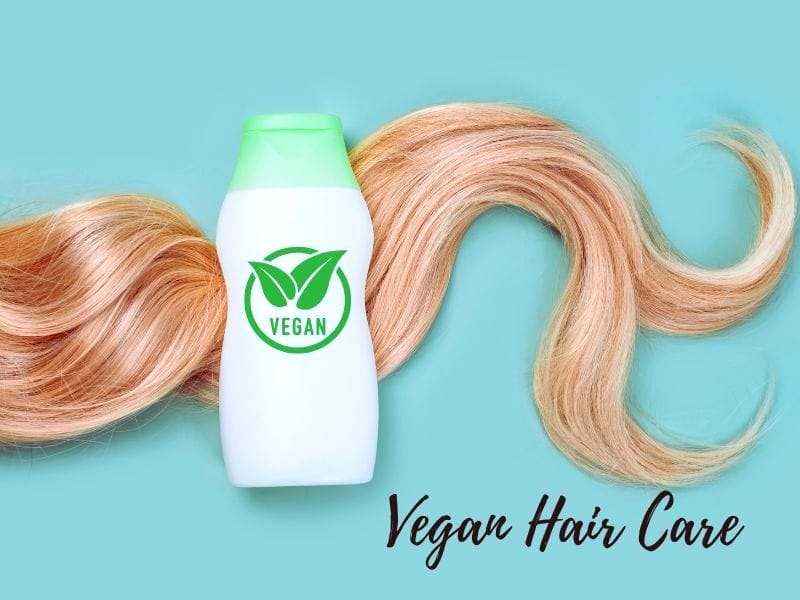
As a salon owner, offering safer, chemical-free alternatives does more than protect health. It positions your business as a leader in the beauty industry—a trusted advocate for client well-being.
Switching to clean, vegan products like Botalab by Riman comes with several benefits:
- Healthier Hair: Gentle, nutrient-rich formulations nourish hair naturally.
- Client Trust: Clients feel confident knowing they’re using safe, transparent products.
- Sustainability: Vegan and eco-friendly solutions reduce environmental harm.
- Enhanced Client Retention: Clients appreciate businesses that align with their values and will return for the experience.
Vegan and natural solutions aren’t just a passing trend—they represent the future of responsible haircare.
Steps to Transitioning to Safer Hair Care Products
Changing the products you use in your salon can feel daunting, but it’s worth the effort. Here’s how to make the switch:

Evaluate Your Current Inventory
Start by examining the labels of the products you currently stock. Identify harmful ingredients like sulfates, parabens, and phthalates.
Research Natural Alternatives
Explore trusted brands offering vegan, cruelty-free, and natural haircare products. Look for third-party certifications to verify claims.
Train Your Team
Educate your staff on the benefits of clean haircare so they can confidently share this knowledge with clients.
Communicate with Clients
Let your clients know about the changes you’re making and why. Emphasize how the switch benefits their health and aligns with sustainability values.
Benefits of Natural Haircare Products
Natural haircare products offer a variety of advantages over their chemical-laden counterparts. Here’s why salon owners should embrace them:
- Gentle on Scalp: Without harsh irritants, natural products soothe sensitive skin and reduce itchiness or redness.
- Rich in Nutrients: Ingredients like aloe vera, coconut oil, and shea butter strengthen hair from root to tip.
- Cruelty-Free: Vegan haircare brands align with ethical practices, making them appealing to conscious consumers.
- Biodegradable Formulas: Eco-friendly ingredients break down easily, reducing their impact on the environment.
Why Clients Are Demanding Vegan Hair Products
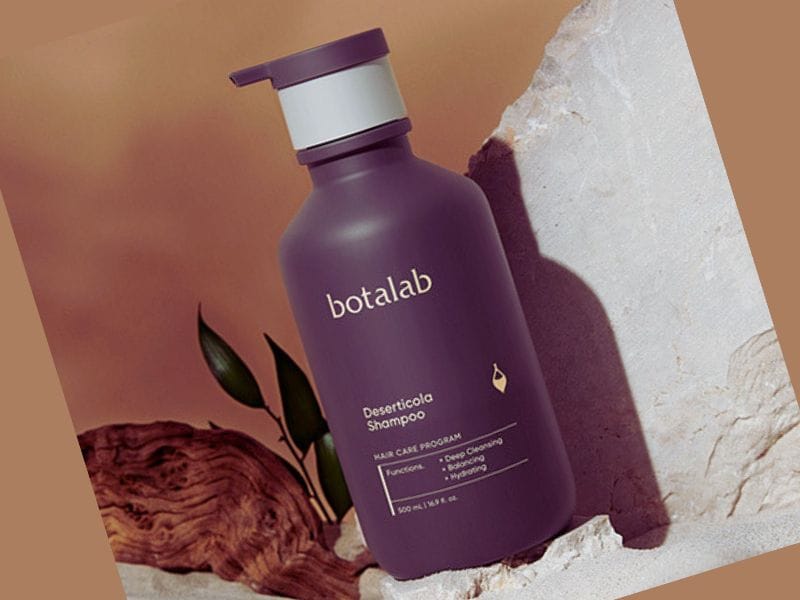
More clients are increasingly demanding vegan hair products due to growing awareness of ethical and environmental concerns. Many consumers are seeking cruelty-free alternatives as they strive to reduce their impact on animals and the planet. By opting for plant-based ingredients like aloe vera, coconut oil, and shea butter, clients are drawn to products that nourish the hair naturally without relying on animal-derived substances like keratin or beeswax. Additionally, the shift towards sustainable lifestyles has highlighted the importance of reducing harmful chemicals, such as sulfates and parabens, found in traditional haircare products.
Clients are also attracted to the transparency of vegan hair care, which often emphasizes clean formulations free from synthetic additives. These products promote healthier hair while supporting environmental sustainability. As clients become more conscious of the potential risks associated with toxic ingredients, vegan alternatives offer a safer and more effective choice, contributing to their overall well-being. Salons that prioritize vegan options align with these values, building trust and loyalty among health-conscious customers.
How Toxic Hair Products Harm Your Salon's Reputation
Using toxic hair products can harm your salon’s reputation. Clients are now more aware of harmful ingredients like sulfates, parabens, and silicones, leading to concerns about safety and quality. Negative feedback about scalp irritation, hair damage, and allergic reactions can damage your salon’s credibility.
Failing to adopt safer, eco-friendly salon options may lead to client dissatisfaction and loss of trust, especially among those who value clean, chemical-free products. Offering safer alternatives demonstrates a commitment to client health, enhancing your reputation and building long-term trust.
Beyond the Chair: The Bigger Impact
The shift to cleaner haircare isn’t just about individual health; it’s about making a broader impact. Consider this:
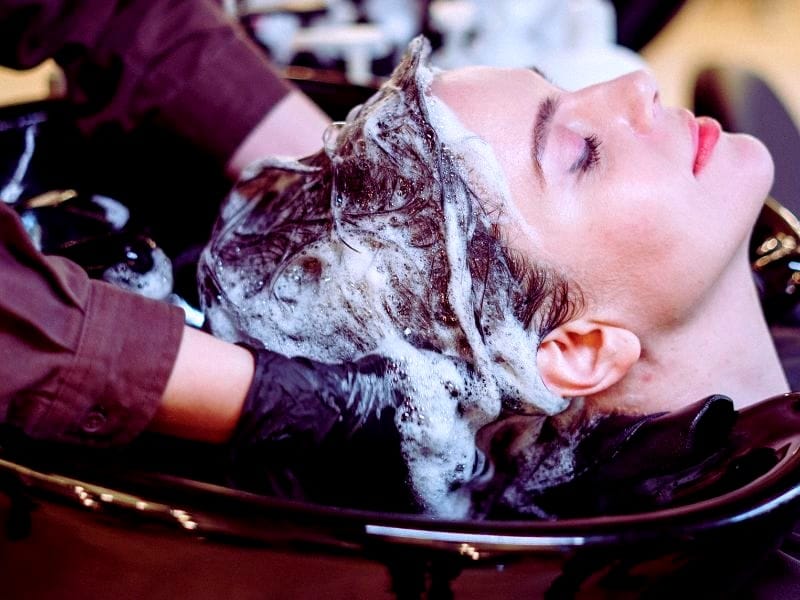
- Environmental Benefits: Many toxic ingredients in haircare products, like sulfates and silicones, don’t break down easily. They end up in waterways, affecting marine life and ecosystems. Switching to biodegradable formulas minimizes this impact.
- Workplace Safety: Your team spends hours around these products. By choosing safer options, you reduce their exposure to harmful chemicals, creating a healthier work environment.
- Brand Reputation: Consumers are drawn to businesses that reflect their values. Being known as a salon that prioritizes clean, ethical products can set you apart in a competitive market.
FAQs About Toxic Hair Products
What are the top toxic ingredients to avoid in hair care?
Some of the most harmful ingredients include sulfates, parabens, silicones, synthetic fragrances, phthalates, and formaldehyde. These are commonly found in mass-market shampoos and conditioners but can negatively impact hair health and overall well-being.
Why are vegan hair products a better alternative?
Vegan hair products are formulated without harmful chemicals and focus on plant-based, natural ingredients. They are safer for clients, better for stylists, and kinder to the environment.
How can I identify toxic hair products?
Read ingredient labels carefully. Watch out for vague terms like "fragrance" or "parfum," and avoid products with known irritants like SLS, parabens, and formaldehyde. Opt for brands that prioritize transparency.
Are toxic hair products bad for the environment?
Yes! Many toxic ingredients, such as silicones and sulfates, do not break down in the environment. They can contaminate water supplies and harm marine life. Switching to biodegradable products helps reduce this impact.
Final Thoughts
Clients are demanding transparency. They want to know what’s in the products you use and how those ingredients affect their health. By switching to safer alternatives and educating both your staff and clients, you’re not just protecting people—you’re leading positive change in the industry.
Ready to make the switch to safer, healthier haircare? Sign up now to learn how you can ditch harmful toxins and embrace clean, eco-friendly products that your clients will love. Join the community of salon owners who are committed to transparency, client well-being, and sustainable practices.
Don’t miss out on tips, product recommendations, and exclusive offers that will help elevate your salon’s reputation and keep clients coming back. Sign up today and be part of the movement toward cleaner, healthier haircare for all! And for more hair salon revenue tips watch this video now!
Watch this video for proven tips, exclusive offers, and expert product recommendations to elevate your salon and keep clients coming back.



